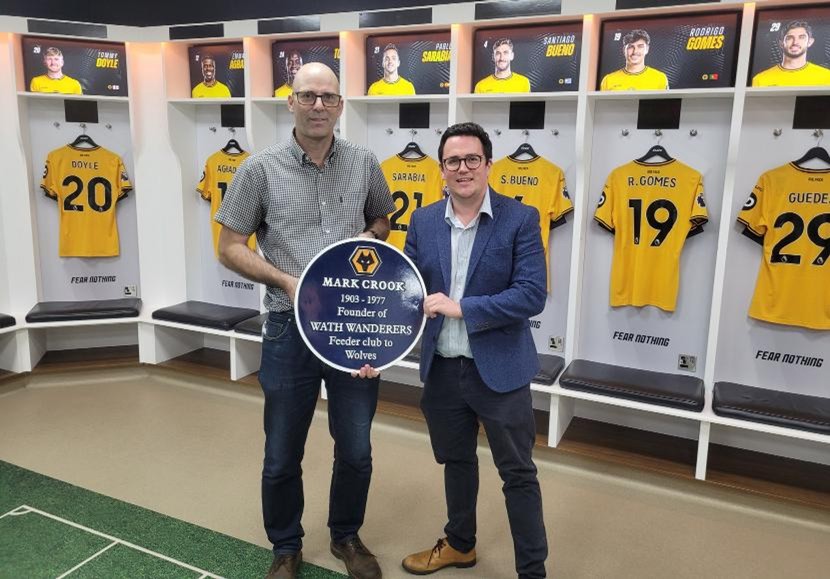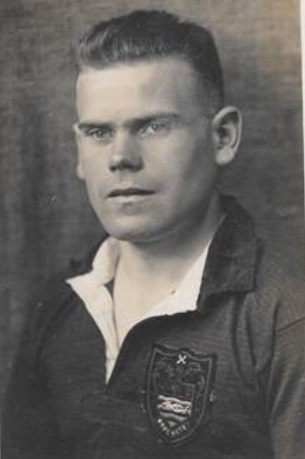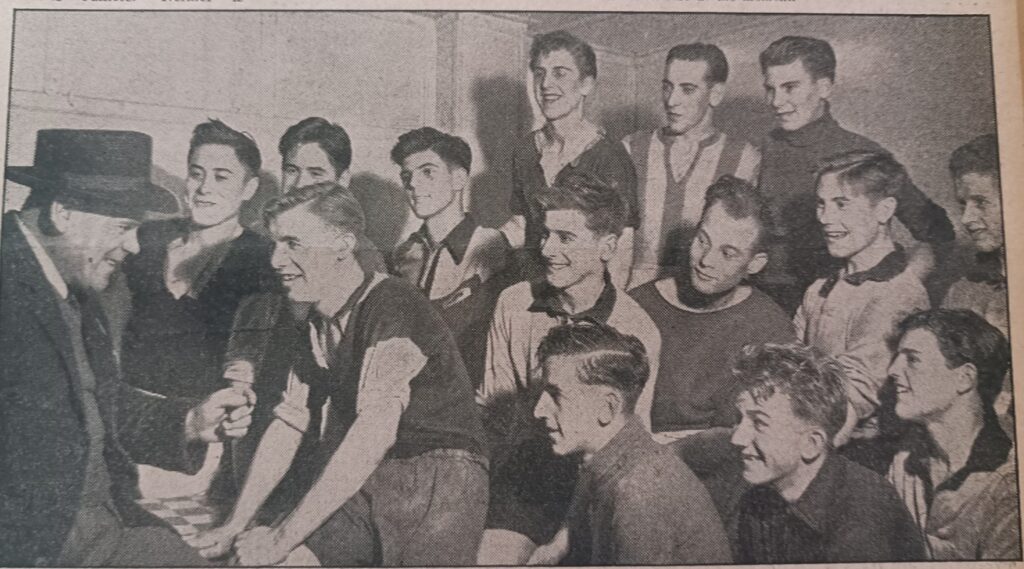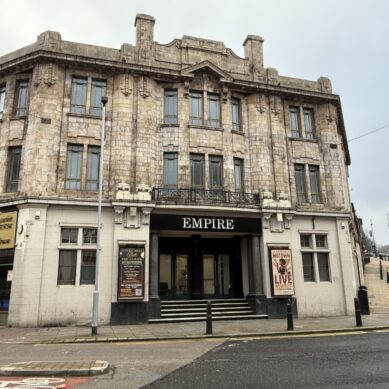Long before the roar of Molineux echoed with Premier League glory, the golden era of Wolverhampton Wanderers was being shaped on a modest, muddy Miners Welfare pitch almost a hundred miles away in South Yorkshire.
On the sidelines was Mark Crook, a retired footballer and chip shop owner from Wath whose belief in nurturing young talent led to the creation of one of England’s earliest football feeder systems.
Wath Wanderers, who were based at Brampton for the majority of their 30-year history, led the way for the football academies of today.
Crook was a football visionary who saw stars in the making before anyone else did. The players he scouted as teenagers went on to score winning goals in FA Cup finals, set record-breaking transfer fees, and be hailed as ‘champions of the world.’
Over 100 of them progressed to elite football, not just for Wolves but for clubs across the world. Some made it into the England squad, including the 1966 World Cup winning team. Others went into management, collecting silverware and league titles along the way.

The legacy of Crook’s pioneering nursery team has remained largely untold in the place where it all began.
Now, a new book set for release this December is shedding long-overdue light on how Crook built a crucial pipeline of youth talent that would change the DNA of football recruitment.
Featuring rare interviews with former players and surviving relatives, Feeding the Wolves also includes the stories of those who might never have worn Wolves’ famous gold and black strip had it not been for Crook’s vision.
The 160-page book is the latest project by football historian, Chris Brook, who has previously published tales about the history of the Totty and Montagu Cup – the latter of which Wath Wanderers won in 1944.
Like Chris’ previous two books, Feeding the Wolves is produced by Penny for Your Sports publications. This time, he’s collaborated with Barnsley Chronicle journalist, Ashley Ball to compile the book.

Ashley, who hails from Wath, grew up listening to his dad tell stories about the famed Wanderers. He’s also a follower of Wath’s cricket and rugby clubs, where Mark Crook’s great-grandsons play.
Having known that a great deal of local lads played for Wath Wanderers, little did they know just how many players from across the north of England had passed through the club.
“We started off with a list of about 20 names of players who went on to become professional footballers,” said Chris. “But since we began researching last December, that number has gone up to 114. The club had over 900 players throughout its lifetime.”
Wolves’ hall-of-famers Ron Flowers and Roy Swinbourne, both from Doncaster but synonymous with Wolverhampton, started their careers at Wath. Conisbrough-born Alan Sunderland might never have scored the last-minute winning goal in the 1979 FA Cup final for Arsenal had he not been scouted by Mark Crook. And former Spurs manager, Keith Burkinshaw, may not have won back-to-back FA Cups and a UEFA Cup in the 1980s had the Barnsley lad not played for the Wanderers in his teenage years.
So how did this unassuming five-foot-two fellow from Yorkshire change the course of endless young lads’ lives?

Born in Morley, near Leeds, in 1903, Mark’s family moved to Wath when he was a young child. He started school at Wath National – now the Church of England school – aged four and remained there until he was 14.
In his youth, Mark Crook played for Darfield and the now defunct Wombwell FC, before turning professional in 1925 for second division side Blackpool. It was with the Seasiders that Mark first saw the advantage of scouting younger players.
The manager at the time was Major Frank Buckley. He’d implemented a youth system that had been dubbed the ‘Buckley Babes’ – and Crook was one of those young lads he’d scouted.
Major Buckley left to manage Wolves in 1927, and his youth recruitment strategy saw them become second division champions, regaining top-flight status after 26 years away.
Crook was part of Buckley’s league winning Wolves squad in 1932, having signed for them in 1929. He retired from football in 1935 after a brief spell with Luton Town. However, his true legacy on the pitch would emerge back in the Dearne.
Having opened a chip shop in his retirement, he spent his spare time watching local games which led to him spotting Colin Collindridge and Gerald Henry who he brought to Molineux for a trial.
Major Buckley didn’t sign either of them, but it wasn’t long before Crook was serving up talent more than cod and chips.
In 1938 he formed his nursery club, initially called Wath Town End Cubs FC playing home games at Wath. The idea of a feeder club was thought to have been triggered by the football team at Brampton Ellis senior school, which won every competition and produced four professional players in one academic year.
Wath Wanderers ran until 1970 and, over the years, the club had many names and various home grounds around Wath, Brampton and Wombwell. The biggest chunk of their 30-year tenure was at Cortonwood Miners’ Welfare in Brampton, where a blue plaque in Mark’s honour was unveiled earlier this year.

With Mark Crook as a scout, Wath Wanderers produced a constant flow of young talent for Buckley and his successor, Stan Cullis – players that Wolves had no right to geographically, many of whom were snatched from under the noses of the five big clubs in South Yorkshire.
The majority of Wath’s players lived a stone’s throw away from the Cortonwood ground. Mark used to say that you didn’t need to go more than 15 miles outside of Wath to find future England players. It was the hotbed of football.
South Yorkshire lads had a hunger to escape the reality of a career down the pit. One good game could change the trajectory of their lives.
However, teenagers also came from across the North East, from Durham and Newcastle to Hull and Leeds, to prove themselves to Mark Crook in the hope he’d send them for a trial at Wolves.
Particularly in the 1950s, after winning successive league titles and the infamous game against Hungarian team Honved, Wolves were the premier team in England that most young lads aspired to.
They wanted to be the next Roy Swinbourne, who scored twice in the Honved heroes match which saw Wolves be crowned ‘champions of the world’ and lead the way for the Champions League of today.
Players like Bob Hatton from Hull and Jim Barron from County Durham would travel to South Yorkshire on a Friday after work and stop with a host family for the weekend – some barely out of school at just 14 or 15.
Bob Hatton almost gave up on his footballing dreams after remaining at Wath for longer than others, but he went on to make the most elite appearances than any other player.
Goalkeeper Barron turned down a contract at Newcastle for an adventure in the West Midlands – and what a journey he had, being appointed assistant coach at Bath City at the ripe old age of 80 in 2023.
Wath Wanderers was such a transient team, with squad numbers constantly changing, that there has only ever been one team photo, taken in 1950.

As an under 18s team, they played in the Northern Intermediate league alongside other northern clubs like Barnsley, Leeds United and Hull City.
Wolves paid the running expenses, including the kits, balls and groundsmen, but every penny spent was worth it. Stan Cullis once dubbed it a goldmine.
It was under Cullis’ management that Wolves’ relationship with Mark Crook blossomed further. They’d played together at Wolves, albeit briefly, as their time at the club overlapped in 1935. Cullis had also been a youth player and risen to captaincy under Major Buckley.
Cullis became Wolves’ manager in 1948, four years after Buckley had left the club. He’d spent his entire playing career at Wolves, so he knew it like the back of his hand.
And it would be this loyal former centre-half that would drive the club’s most successful era in history – aided by our man Mark Crook here in South Yorkshire.
Crook’s involvement saw almost 40 players from South Yorkshire sign professional contracts for Wolves. In all but one season between 1938 and 1970, Wolves’ first team had at least one Wath player in the squad.

Others who weren’t ready for that top level went to lower league teams, some found their own clubs independently, and others chose to stay local.
Brampton’s Golden Boot record holder, George Robledo, turned down an offer from Wolves and signed his first professional contract at Barnsley instead; his mum thought he was too young to leave home. While Darfield striker Kevin McHale spent the majority of his career at Huddersfield Town after leaving Wath Wanderers.
Others like Cyril Knowles were rejected by Wolves. But their decision was short-sighted as Knowles went on to become a stalwart at Spurs where he won the FA Cup, two League Cups and a UEFA Cup. His display of talent on the defence at White Hart Lane saw him called up to the England team in the late 1960s.
Wolves did, however, sign his younger brother Peter who was a popular player before giving it up to become a Jehovah’s Witness.
Edlington-born Ron Flowers famously lost two front teeth playing for Wath Wanderers. He went on to become one of Wolves’ best-loved players, winning three league championships and an FA Cup during his 15-season spell at the club. He also captained England and was part of the 1966 World Cup winning squad, picking up an MBE in 2021 before he died later that year.
Flowers’ younger brother, John, also played for Wath’s feeder club but went on to play for Stoke and Doncaster Rovers. Ashley has interviewed John and his nephew, Glen (Ron’s son) for the book.
He’s also managed to track down the elusive Alan Sunderland who has lived in Malta for almost thirty years. Other interesting interviewees include the aforementioned Bob Hatton, Jim Barron and Kevin McHale, along with Steve Daley, who had the most expensive transfer fee when he left Wolves for Man City in 1979.
Chris says what he’s found most fascinating are the stories of players who didn’t make it professional but went on to have interesting lives off the football pitch.
People like Johnny Wardle from Ardsley, a Wath grammar schoolboy who chose cricket over football and had a long, successful career as an England test cricketer. Or Denzil Flanagan from Cudworth who was a PE teacher that once played in an England amateur football match against the Netherlands in the 1950s. Denzil went on to become a HM schools inspector (predecessor of OFSTED) while playing non-league football for Tooting and Mitcham.
And of course, the story of the man himself who was still scouting up until his death aged 74 in 1977, despite having disbanded his beloved Wath Wanderers seven years earlier.
With such a vast and varied past team sheet, Feeding the Wolves is sure to reel in any football fan.

Pre-orders are available until the end of September at a reduced price of £12, which also includes your name printed in the book. From 1st October, the price will be £15 without names printed.
Once published in December, the book will be priced at £22.
It will be available to collect or purchase from places like Pettits Shoes in Mexborough, the Wath’s Montgomery Hall, Wath Rugby Club, and the Barnsley Chronicle office on Church Street in the town centre. Or it can be posted out for an additional £3. It will also be available to buy on Amazon.
All profits from the book will be split between two causes: the Wolves Foundation and Brampton United JFC who still play at Cortonwood Miners Welfare.
To find out more or to pre-order your copy, visit their website.






